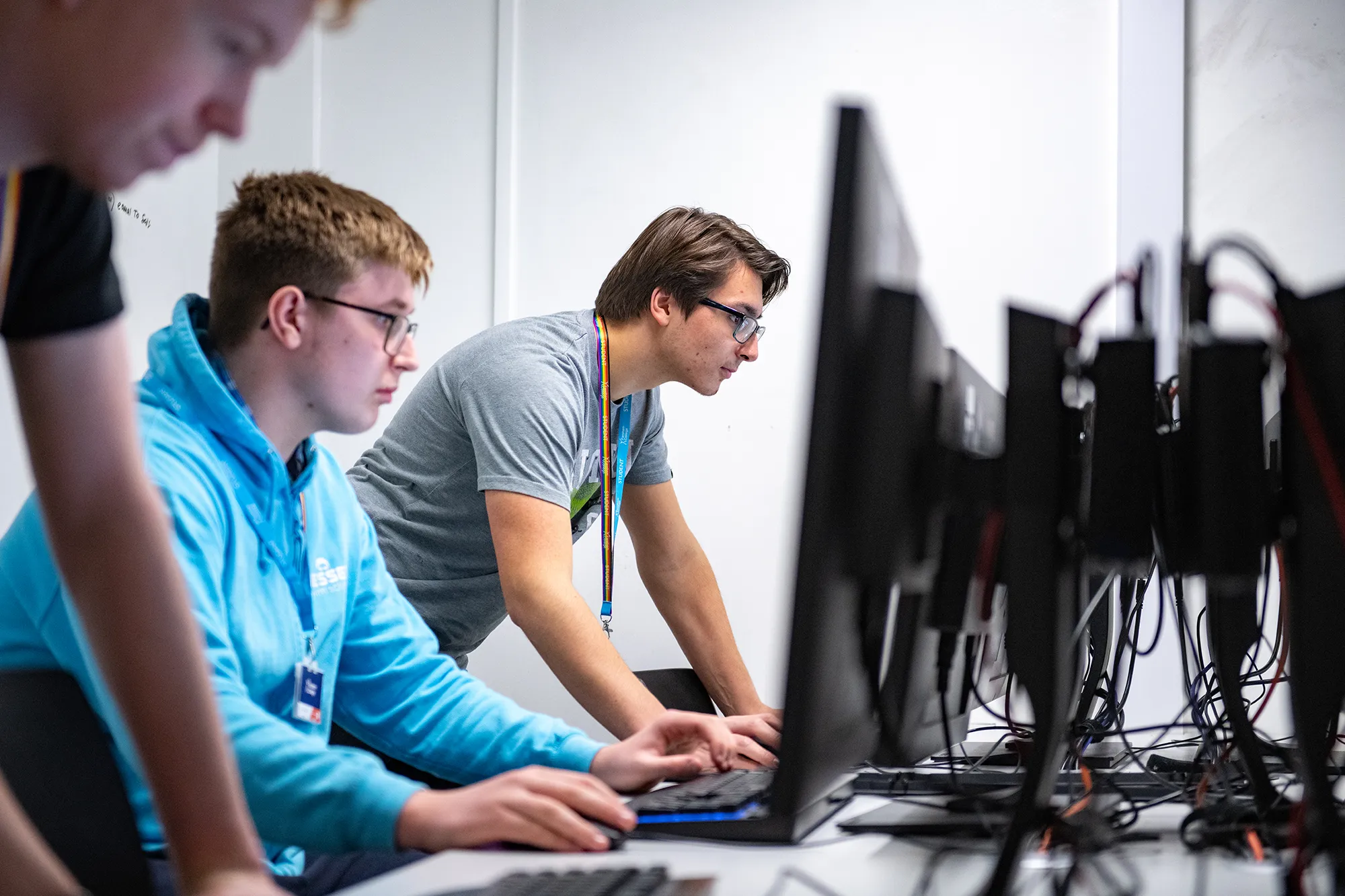Get ready to embark on an exciting journey into the world of digital technology! This Level 3 T Level is equivalent to three A Levels, equips you with the knowledge, skills, and behaviours needed to thrive in skilled employment or pursue higher-level technical study in a variety of digital and computing occupations.
Over two years, you’ll gain a mix of core and specialist knowledge, and as part of the T Level programme, you’ll complete an extensive practical industry placement with a digital employer, providing a minimum of 315 hours of real-world experience. This course is ideal for those looking to kick-start a digital career with a focus on software design and development.
You’ll learn about key topics including
• business contexts
• infrastructure design
• managing change
• digital culture
• data analysis
• digital environments
You’ll explore essential themes such as diversity and inclusion, digital learning covering emerging technologies like AI and the Internet of Things (IoT), and digital legislation and security. The course will also delve into planning and programming/software development, enhancing your understanding of the software development lifecycle, network environments, game development, and programming languages like C, C++, and Python.
Your education will be project-based, providing you with the knowledge and skills needed to achieve competence in your chosen specialism. You’ll engage in an Employer Set Project, covering planning projects, identifying and fixing defects in code, designing and developing solutions, and reflective evaluation.
In addition to your coursework, you’ll benefit from hands-on experience in facilities such as an animation suite, digital video production, IT workshops, and design studios. This blend of classroom learning and industry-based experience will prepare you for a successful career in the digital arena, with opportunities to earn additional UCAS points and develop higher Maths skills.
The qualification also includes two A Level standard assessment papers covering areas like computational thinking, programming data and structure, digital analysis, and cybersecurity, alongside an Occupational Specialist Component focusing on problem analysis, prototype development, and gathering feedback for improvement.
